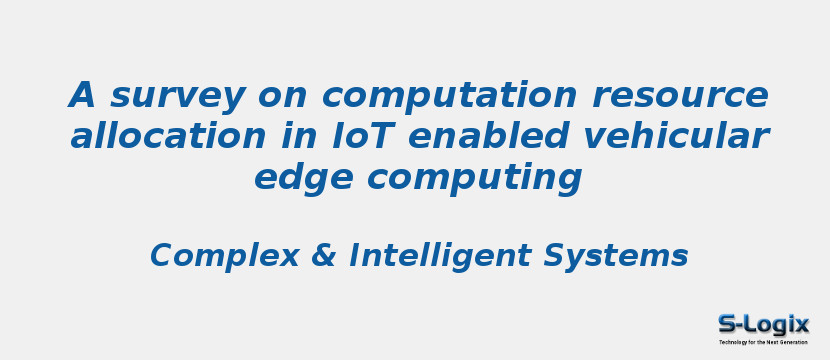Research Area: Edge Computing
The number of vehicles is increasing at a very high rate throughout the globe. It reached 1 billion in 2010, in 2020 it was around 1.5 billion and experts say this could reach up to 2–2.5 billion by 2050. A large part of these vehicles will be electrically driven and connected to a vehicular network. Rapid advancements in vehicular technology and communications have led to the evolution of vehicular edge computing (VEC). Computation resource allocation is a vehicular networks primary operations as vehicles have limited onboard computation. Different resource allocation schemes in VEC operate in different environments such as cloud computing, artificial intelligence, blockchain, software defined networks and require specific network performance characteristics for their operations to achieve maximum efficiency. At present, researchers have proposed numerous computation resource allocation schemes which optimize parameters such as power consumption, network stability, quality of service (QoS), etc. These schemes are based on widely used optimization and mathematical models such as the Markov process, Shannons law, etc. So, there is a need to present an organized overview of these schemes to help in the future research of the same. In this paper, we classify state-of-the-art computation resource allocation schemes based on three criteria: (1) Their optimization goal, (2) Mathematical models/algorithms used, and (3) Major technologies involved. We also identify and discuss current issues in computation resource allocation in VEC and mention the future research directions.
Keywords:
Author(s) Name: Naren, Abhishek Kumar Gaurav, Nishad Sahu, Abhinash Prasad Dash, G. S. S. Chalapathi & Vinay Chamola
Journal name: Complex & Intelligent Systems
Conferrence name:
Publisher name: Springer
DOI: https://doi.org/10.1007/s40747-021-00483-x
Volume Information:
